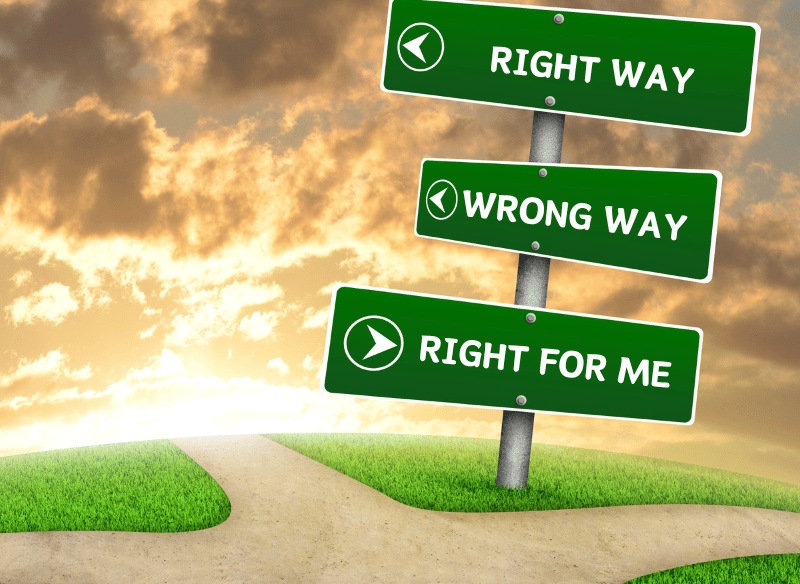Being selfless is really Selfish
Navigating dysfunctional relationships and finding peace in your decisions to take care of yourself. Recognizing that being selfless is just another way to trap you into people-pleasing behaviors.
RELATIONSHIPSTRAUMA & ABUSE
Tyrone
10/5/20244 min read


Of course being selfless is good - right?
As life and business coaches, whenever we facilitate a group session on relationships we find that there is a strong belief that being selfless and putting others ahead of you is viewed as a virtuous act and desirable characteristic.
Well… that is until we do this exercise.
The story of Sam & Pam
Sam has a “great” relationship with his mother Pam. She raised him as a single mother when Sam’s dad left the relationship. Sam is now 18 years old and is ready to head off to university. He dreams of attending his dream college which is some 5000 km away from his current home. His mother is distraught and hurt because she cannot imagine life without Sam.
Sam tries to reassure his mother that the distance between them and time changes will not affect his choices for the type of relationship he cherishes with her. He understands how she feels but he also wants to be able to pursue his dreams as well as maintain the loving relationship they have. Sam’s mother would have none of it. She catastrophizes over the changes and interprets them to mean that Sam will lose interest in their relationship.
Sam goes on to pursue his dreams and works to maintain his relationship with his mother. Sam’s mother pulls away from the relationship. When Sam calls to share good news of his grades and accomplishments, she sounds more depressed and dejected. When he comes home for the holidays, she appears happy at first but quickly inserts how awful things are since he has been gone.
Over time, Sam finds it difficult to maintain his positivity in relation to his mother and eventually reduces his calls and visits. Although he wanted to have a fulfilling life that included his mother, she was unwilling to adapt to the changes in the relationship and chose to become more distant, which eventually resulted in the thing that she feared the most.
Sympathy vs Empathy
We chose this scenario because it often evokes many emotions and opinions about what Sam and Pam could and should have done differently. It takes a while for many of the participants in our courses to get to the deeper analysis of relationship functionality. This is normal because our society programs us to stay on the level of sympathy and to avoid going to the level of empathy.
We have been programmed to ignore ourselves and focus on the needs of others as a show of some great moral value. This is a myth, and it truly serves no good purpose. When we practice this so-called “selflessness” what we are doing is engaging in sympathetic behaviors. This leads to
● Thinking/ ruminating about another person’s thoughts and feelings
● Expressing opinions and giving unsolicited advice
● Judging things from a personal point of view
● Feeling sorry without understanding or seeking to understand what another person is going through
Empathy on the other hand is developed out of a sense of self awareness and appreciation that each of us has a unique perspective of the world. Although empathetic behaviors are often erroneously characterized as selfish, it is this type of approach that is proven to serve us and our wider society best.
In our scenario about Sam and his mother most people often start by feeling a deep sense of pity for one of them more than the other. In other words, they choose a side. Their minds are wired to believe that one of them is right and the other is wrong.
There is a smaller group of people that will sympathize with both and declare there was no way that this relationship could continue because they no longer wanted the same things.
Occasionally, there is a person or two that ask a few questions, they want to have a deeper understanding of Sam and his mother. These people are the more empathetic ones.
Sam or Pam?
At the end of the discussion about Sam and his mother we leave our participants with the choice of what they would do. Hence there are those in the group that would label Sam as ungrateful and not caring enough about his mother’s feelings after all the things she did for him as a single mother. Opinions and judgements such as these are what limit many of us from taking actions to pursue the things that bring us fulfillment.
At some point in our lives, we will be Sam and we will be faced with the decision to pursue our personal fulfillment or compromise our values to satisfy someone’s preference for us.
Likewise, others in the group speak of how selfish Pam was and how she already lived her life and now she is trying to limit her son from living his.
Again, at some point in time in our lives we will be Pam and we will be faced with the decision to examine the state of a current relationship and how the choices of the other person will affect us and to what extent are we willing to change to sustain, grow, diminish or lose the relationship.
Make It About You
Functional relationships are about choice. When you need to give up who you are at the core to satisfy someone else’s comfort you are basically in a dysfunctional relationship.
We all will face this challenge on this journey called life, so be prepared.
What do you think about Sam and Pam? Reach out to us: letstalk@tiffanyandtyrone.com
Dale Moore and Melanie Chikowski are Life & Business Coaches, authors of the book “Make It About You” and the self-help journal “My Dreams to Goals to Reality Journal”.

